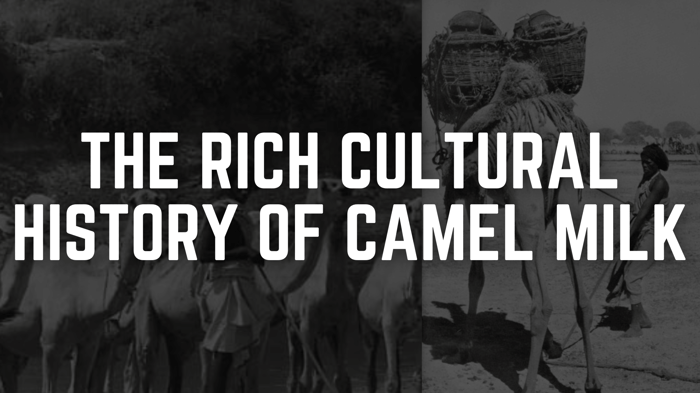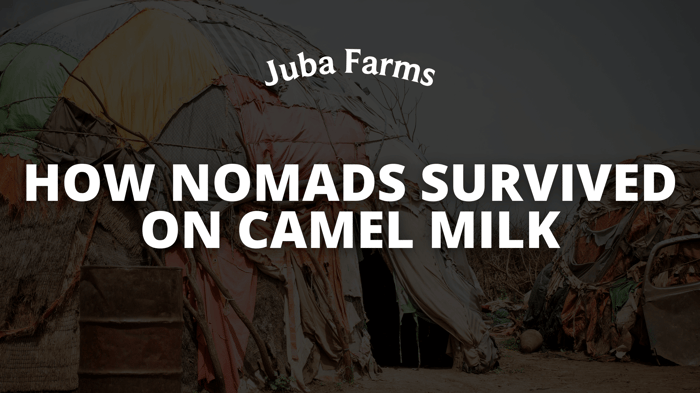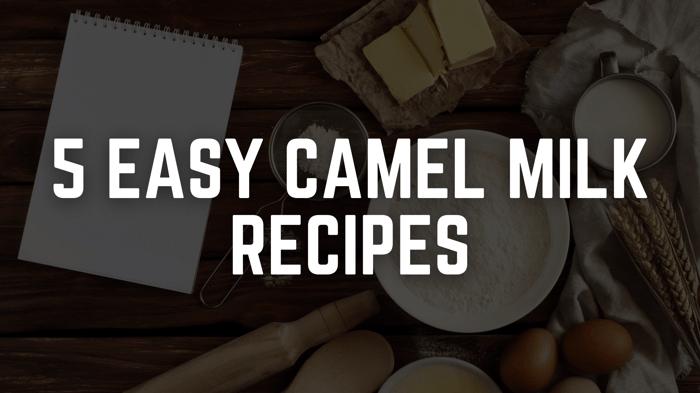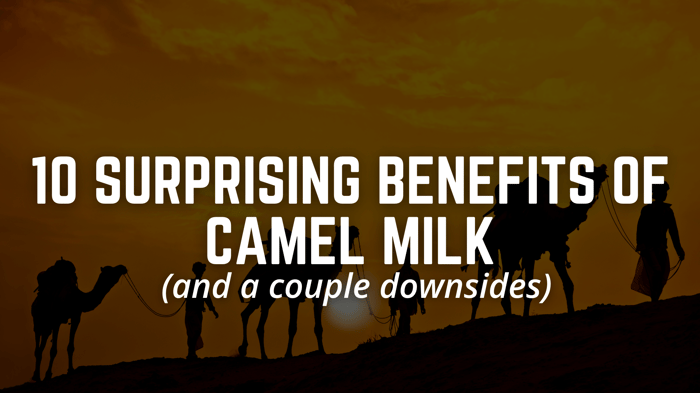Table of Contents
Camel milk has played a vital role in the lives of nomadic peoples for centuries. Among the Somali people, this cherished beverage is far more than a source of sustenance—it is a cultural cornerstone, deeply ingrained in our traditions, folklore, and way of life. This nutrient-packed superfood has supported communities in harsh environments, offering nourishment and survival where few other resources can thrive. Its influence extends to other nomadic groups, like the Bedouins, highlighting its universal importance in desert cultures.
In this article, we’ll explore the deep cultural and historical significance of this extraordinary drink, focusing on its role in Somali culture, its shared heritage with the Bedouins, and its ongoing relevance in the modern world.
A Lifeline for Somali Nomads
In Somalia, camels are much more than animals—they are a way of life. For centuries, Somali nomads have relied on camels for transportation, trade, and most importantly, milk. Camels’ ability to survive in harsh environments makes them invaluable to communities living in the dry regions of the Horn of Africa.
Camel milk is not just a drink; it is a vital resource that sustains life during long journeys and periods of drought. Unlike many other livestock, camels can produce milk even in extreme conditions, ensuring that families have a steady source of hydration and nutrition. This has made camel milk indispensable to Somali nomadic culture.
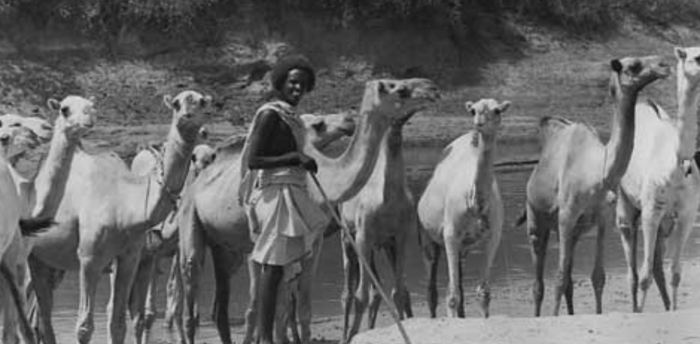
Daily Sustenance and Energy
Camel milk is a dietary cornerstone in Somali households. Many people start their day with a glass of this nutrient-rich beverage, which provides the energy needed for physically demanding lifestyles. It is consumed fresh, fermented, or occasionally mixed with grains or honey to create hearty meals.
Fermented milk, known as susaac, is especially popular for its tangy flavor and probiotic benefits. In nomadic settings, where food options are limited, it serves as both a meal and a drink, offering a complete package of essential nutrients. Its ability to stay fresh for long periods, even without refrigeration, makes it particularly practical for nomadic families.
Camel Milk in Somali Traditions
Hospitality and Generosity
Spiritual and Cultural Significance
The act of milking camels is often accompanied by rituals, songs, and gabays (somali poetry). Camels are viewed as a blessing, and their milk is considered a sacred gift. Traditional Somali folklore frequently celebrates camel milk as a symbol of health, vitality, and prosperity.
A Marker of Wealth
In Somali society, camels are a measure of wealth, and their milk is seen as an extension of that prosperity. Families with abundant camels and milk production are considered fortunate, as it represents not only sustenance but also economic stability. This deep cultural association underscores why camel milk holds such a revered place in Somali life.
Shared Legacy with the Bedouins
The importance of camel milk extends beyond Somalia to other nomadic cultures, particularly the Bedouins of the Arabian Peninsula. Like the Somali people, Bedouins have relied on camels for survival in the harsh desert environment, where water and food are scarce. It's often called "white gold," and serves as a dietary staple for the Bedouins, providing essential hydration and nutrients.
Bedouin traditions also celebrate the milk for its healing properties. It has been used in traditional medicine to treat various ailments, including digestive issues and fatigue. The shared reliance on camel milk among Somali and Bedouin communities highlights the universal importance of this remarkable drink in desert cultures.
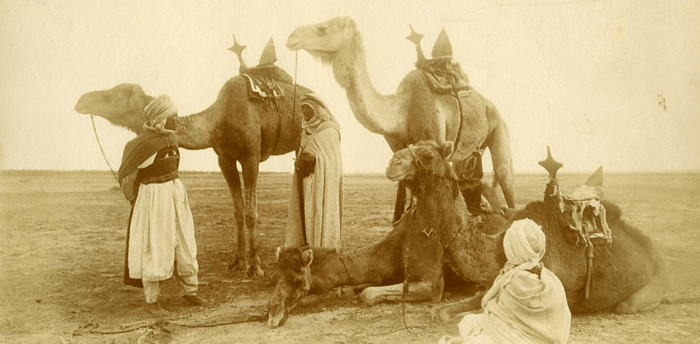 Historical Bedouin Photo with Camels
Historical Bedouin Photo with CamelsThe Health Benefits
Nutritional Excellence
It seriously is a powerhouse of nutrition. Its unique composition makes it superior to many other types of milk, offering:
- Vitamin C: Three times more than cow’s milk, boosting immunity.
- Iron: Essential for energy production and preventing anemia.
- Low Fat and High Protein Content: Making it a healthier alternative for many people.
Additionally, it is easy to digest, making it an excellent option for those who are lactose intolerant or allergic to cow’s milk.
Healing Properties
Traditional Somali and Bedouin medicine have long recognized the healing potential of this unique superfood. Modern research supports numerous claims that prove this milk contains natural antimicrobial and anti-inflammatory properties. Its ability to support the immune system and promote overall well-being has earned it the title of a "superfood."
A Modern Renaissance
Global Popularity
In recent years, this milk has captured the attention of health-conscious consumers worldwide. Known for its nutritional benefits and unique flavor, camel milk is increasingly sought after in Europe, North America, and Asia. Its status as a functional food has driven demand, making it a trendy alternative to conventional dairy products.
Producers in Somalia and other regions are now bringing this incredible milk to the global market, introducing this traditional beverage to new audiences. Companies like Juba Farms are at the forefront of this movement, ensuring that camels milk is produced sustainably and ethically.
Overcoming Challenges
While the global demand is growing, its production remains challenging. Camels produce less milk than cows, and their milk requires careful handling to retain its quality. Despite these obstacles, the increasing popularity of camel milk offers promising opportunities for communities that have depended on it for generations.
Preserving the Heritage
It's more than a nutritious beverage—it is a symbol of resilience, tradition, and survival. For the Somali people, it represents their connection to their camels, their land, and their culture. By sharing camel milk with the world, they are not only introducing a superfood but also telling a story of ingenuity and resourcefulness.
As it continues to gain recognition globally, it's important to honor the communities that have kept its traditions alive. From its vital role in Somali and Bedouin cultures to its newfound popularity in modern health trends, this milk remains a bridge between the past and the future. Whether enjoyed in the Somali desert or on a city dining table, each camel milk sip carries a legacy of survival, strength, and unity.
At Juba Farms, we offer 100% pure camel milk at the best prices in the U.S. We deliver straight to your door, and it will arrive cold and fresh or your money back.




